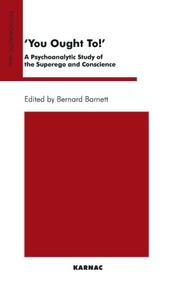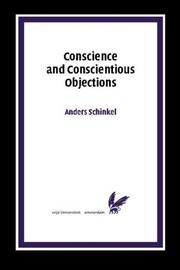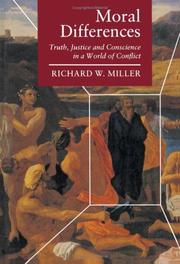| Listing 1 - 10 of 19 | << page >> |
Sort by
|

ISBN: 1780494548 0429924364 0429910134 0429485360 1283069210 9786613069214 1849405565 9781855759831 1855759837 9781849405560 9781855759831 1855759837 Year: 2018 Publisher: London : Taylor and Francis,
Abstract | Keywords | Export | Availability | Bookmark
 Loading...
Loading...Choose an application
- Reference Manager
- EndNote
- RefWorks (Direct export to RefWorks)
"The superego is one of those psychoanalytic concepts that has been assimilated into ordinary language, like repression, the unconscious and the Oedipus complex. Because it has become such a familiar notion, its complexity may not always be appreciated, nor the controversy that it can inspire. Its origins, for example, its timing in the course of development, whether and how it is influenced by gender all these questions and others have been the source of lively disagreement. For psychoanalysts it is a fundamental concept of their discipline, but it belongs to a meta psychology whose value is often questioned, and opinions might vary on whether it remains truly alive as a generative, energising idea in contemporary psychoanalysis."--Provided by publisher.
Superego. --- Conscience. --- Agent (Philosophy)
Book
ISBN: 0429921985 0429907753 0429482981 1282900803 9786612900808 1849406936 9781849406932 9781855757059 1855757052 9780429921988 Year: 2018 Publisher: Abingdon, Oxon ; New York, NY : Routledge,
Abstract | Keywords | Export | Availability | Bookmark
 Loading...
Loading...Choose an application
- Reference Manager
- EndNote
- RefWorks (Direct export to RefWorks)
This book offers a new perspective on conscience as an as yet unrealized human potential, but a potential toward which human beings are naturally driven. A distinction is made between a ""mature"" or ""healthy"" conscience - a ""conscience capable of maturation"" - and the classical notion of the superego; it also postulates that the two may represent two separate lines of development. Conscience is seen to be inseparable from consciousness; the development of a mature conscience is seen to have its foundation in the development of a true or authentic self, while the classical notion of the su
Superego. --- Conscience. --- Philosophy of mind. --- Psychoanalysis.
Book
ISBN: 8576003678 8576002558 Year: 2011 Publisher: SciELO Books - EdUFSCar
Abstract | Keywords | Export | Availability | Bookmark
 Loading...
Loading...Choose an application
- Reference Manager
- EndNote
- RefWorks (Direct export to RefWorks)
Os ensaios reunidos neste livro abordam aspectos particulares e questões específicas da metapsicologia freudiana. Esses aspectos dizem respeito, sobretudo, aos principais problemas com os quais ela se defronta: a natureza do mental; sua relação com os processos cerebrais; a justificativa da hipótese do inconsciente; as questões envolvidas na elaboração de uma teoria da consciência e de suas relações com a mente inconsciente; o problema mais amplo das relações entre a mente e o corpo, onde entra em cena a dimensão pulsional do psiquismo.
Conscience. --- Ethics --- Guilt --- Superego --- Psychoanalytical and Freudian psychology
Book
ISBN: 0429483333 1782411399 9781782411390 1299660703 9781299660700 9781781812716 1781812713 9780429922336 0429922337 9780429908101 0429908105 9780429483332 9780429936562 0429936567 Year: 2013 Publisher: London Karnac Books
Abstract | Keywords | Export | Availability | Bookmark
 Loading...
Loading...Choose an application
- Reference Manager
- EndNote
- RefWorks (Direct export to RefWorks)
Whereas Freud himself viewed conscience as one of the functions of the superego, in The Still Small Voice: Psychoanalytic Reflections on Guilt and Conscience, the authorargues that superego and conscience are distinct mental functions and that, therefore, a fourth mental structure, the conscience, needs to be added to the psychoanalytic structural theory of the mind. He claims that while both conscience and superego originate in the so-called pre-oedipal phase of infant and child development they are comprised of contrasting and often conflicting identifications. The primary object, still most often the mother, is inevitably experienced as, on the one hand, nurturing and soothing and, on the other, as frustrating and persecuting. Conscience is formed in identification with the nurturer; the superego in identification with the aggressor. There is a principle of reciprocity at work in the human psyche: for love received one seeks to return love; for hate, hate (the talion law).
Psychoanalysis. --- Guilt. --- Conscience. --- Ethics --- Guilt --- Superego --- Emotions --- Conscience --- Shame --- Psychology --- Psychology, Pathological --- Psychological aspects

ISBN: 1281191256 9786611191252 904850208X 1429472626 9781429472623 9085553911 9789085553915 9789048502080 9789085553915 9789048502080 Year: 2007 Publisher: Amsterdam : Pallas Publications,
Abstract | Keywords | Export | Availability | Bookmark
 Loading...
Loading...Choose an application
- Reference Manager
- EndNote
- RefWorks (Direct export to RefWorks)
About the philosophy of consentious objections
Conscience. --- Conscientious objection. --- Military ethics --- War --- Ethics --- Guilt --- Superego --- Moral and ethical aspects
Book
ISBN: 1283571587 9786613884039 1611171881 9781611171884 9781611170764 1611170761 9781283571586 6613884030 1611174384 Year: 2012 Publisher: Columbia, SC : University of South Carolina Press,
Abstract | Keywords | Export | Availability | Bookmark
 Loading...
Loading...Choose an application
- Reference Manager
- EndNote
- RefWorks (Direct export to RefWorks)
An examination of the discourse of political prisoners as a form of vernacular rhetoric.
Communication in politics. --- Conscience --- Rhetoric --- Political aspects. --- Political communication --- Politics and literature --- Ethics --- Guilt --- Superego --- Political science
Book
ISBN: 1622731212 9781622731213 9781622731039 1622731034 Year: 2016 Publisher: Wilmington, Delaware : Vernon Press,
Abstract | Keywords | Export | Availability | Bookmark
 Loading...
Loading...Choose an application
- Reference Manager
- EndNote
- RefWorks (Direct export to RefWorks)
Personality. --- Ego (Psychology) --- Superego. --- Super-ego --- Unconscious conscience --- Personality --- Psychoanalysis --- Conscience --- Identity (Psychology) --- Psychology --- Self --- Personal identity --- Personality psychology --- Personality theory --- Personality traits --- Personology --- Traits, Personality --- Individuality --- Persons --- Temperament
Book
ISBN: 1282821016 9786612821011 140083600X 0691139954 9780691139951 9781400836000 9781282821019 Year: 2011 Publisher: Princeton : Princeton University Press,
Abstract | Keywords | Export | Availability | Bookmark
 Loading...
Loading...Choose an application
- Reference Manager
- EndNote
- RefWorks (Direct export to RefWorks)
Contemporary law and public policy often treat human beings as selfish creatures who respond only to punishments and rewards. Yet every day we behave unselfishly--few of us mug the elderly or steal the paper from our neighbor's yard, and many of us go out of our way to help strangers. We nevertheless overlook our own good behavior and fixate on the bad things people do and how we can stop them. In this pathbreaking book, acclaimed law and economics scholar Lynn Stout argues that this focus neglects the crucial role our better impulses could play in society. Rather than lean on the power of greed to shape laws and human behavior, Stout contends that we should rely on the force of conscience. Stout makes the compelling case that conscience is neither a rare nor quirky phenomenon, but a vital force woven into our daily lives. Drawing from social psychology, behavioral economics, and evolutionary biology, Stout demonstrates how social cues--instructions from authorities, ideas about others' selfishness and unselfishness, and beliefs about benefits to others--have a powerful role in triggering unselfish behavior. Stout illustrates how our legal system can use these social cues to craft better laws that encourage more unselfish, ethical behavior in many realms, including politics and business. Stout also shows how our current emphasis on self-interest and incentives may have contributed to the catastrophic political missteps and financial scandals of recent memory by encouraging corrupt and selfish actions, and undermining society's collective moral compass. This book proves that if we care about effective laws and civilized society, the powers of conscience are simply too important for us to ignore.
Conscience. --- Law - Moral and ethical aspects. --- Law -- Moral and ethical aspects. --- Law and ethics. --- Conscience --- Law and ethics --- Law --- Philosophy --- Ethics --- Philosophy & Religion --- Moral and ethical aspects --- Moral and ethical aspects. --- Acts, Legislative --- Enactments, Legislative --- Laws (Statutes) --- Legislative acts --- Legislative enactments --- Ethics and law --- Law and morals --- Morals and law --- Jurisprudence --- Legislation --- Guilt --- Superego --- Droit --- Philosophie --- Sources

ISBN: 1400862760 0691605637 0691020922 0691074097 9781400862764 9780691020921 Year: 2014 Publisher: Princeton Princeton University Press
Abstract | Keywords | Export | Availability | Bookmark
 Loading...
Loading...Choose an application
- Reference Manager
- EndNote
- RefWorks (Direct export to RefWorks)
In a wide-ranging inquiry Richard W. Miller provides new resources for coping with the most troubling types of moral conflict: disagreements in moral conviction, conflicting interests, and the tension between conscience and desires. Drawing on most fields in philosophy and the social sciences, including his previous work in the philosophy of science, he presents an account of our access to moral truth, and, within this framework, develops a theory of justice and an assessment of the role of morality in rational choice. In Miller's view, we are often in a position to claim that our moral judgments are true descriptions of moral facts. But others, relying on contrary ways of moral learning, would reject truths that we are in a position to assert, in dissent that does not depend on irrationality or ignorance of relevant evidence or arguments. With this mixed verdict on "moral realism," Miller challenges many received views of rationality, scientific method, and the relation between moral belief and moral choice. In his discussion of justice, Miller defends the adequacy, for modern political choices, of a widely shared demand that institutions be freely and rationally acceptable to all. Drawing on social research and economic theories, he argues that this demand has dramatically egalitarian consequences, even though it is a premise of liberals and conservatives alike. In the final chapters, Miller investigates the role and limits of morality in the choice of conduct, arguing for new perspectives on reason and impartiality.Originally published in 1992.The Princeton Legacy Library uses the latest print-on-demand technology to again make available previously out-of-print books from the distinguished backlist of Princeton University Press. These editions preserve the original texts of these important books while presenting them in durable paperback and hardcover editions. The goal of the Princeton Legacy Library is to vastly increase access to the rich scholarly heritage found in the thousands of books published by Princeton University Press since its founding in 1905.
Conscience. --- Ethics. --- Justice. --- Truth. --- Justice --- Conscience --- Ethics --- Truth --- Conviction --- Injustice --- Deontology --- Ethics, Primitive --- Ethology --- Moral philosophy --- Morality --- Morals --- Philosophy, Moral --- Science, Moral --- Belief and doubt --- Philosophy --- Skepticism --- Certainty --- Necessity (Philosophy) --- Pragmatism --- Conduct of life --- Law --- Common good --- Fairness --- Values --- Guilt --- Superego
Book
ISBN: 946209005X 1283945940 9462090076 9462090068 Year: 2012 Publisher: Rotterdam : SensePublishers : Imprint: SensePublishers,
Abstract | Keywords | Export | Availability | Bookmark
 Loading...
Loading...Choose an application
- Reference Manager
- EndNote
- RefWorks (Direct export to RefWorks)
With a new century, there has emerged a new age in moral considerations. The Arab Spring, Facebook, and the Occupy Movement all point to an awareness of, and concern for, the moral character of the individual and the collective. The phrase, “it’s the right thing to do”, echoing throughout news media and one’s daily exchanges, typically indicates a moral positioning. Presented in this book is the argument that now is the time to call it what it is, a matter of conscience, and to embrace the transformative power of a new vocabulary for moral and character education. In a more expansive approach than typically seen, this book examines the nature and function of conscience. Building upon the foundational work of Thomas Green (1999), the vocabulary of reflexive judgment, reflexive emotions, normation, and voices of conscience, are explored as they apply to moral formation, with examples and applications provided. Specific attention is given to the interrelationship of the collective conscience with democracy. Educating for conscience and the notion of the sacred are also examined. Written from an educator’s perspective, this book offers a framework for moral education to both the secular and religious domains.
Conscience. --- Moral education. --- Philosophy --- Education --- Social Sciences --- Philosophy & Religion --- Education - General --- Ethics --- Character education --- Ethical education --- Education. --- Education, general. --- Child rearing --- Religious education --- Guilt --- Superego --- Children --- Education, Primitive --- Education of children --- Human resource development --- Instruction --- Pedagogy --- Schooling --- Students --- Youth --- Civilization --- Learning and scholarship --- Mental discipline --- Schools --- Teaching --- Training --- Character. --- Ethology --- Personality
| Listing 1 - 10 of 19 | << page >> |
Sort by
|

 Search
Search Feedback
Feedback About
About Help
Help News
News